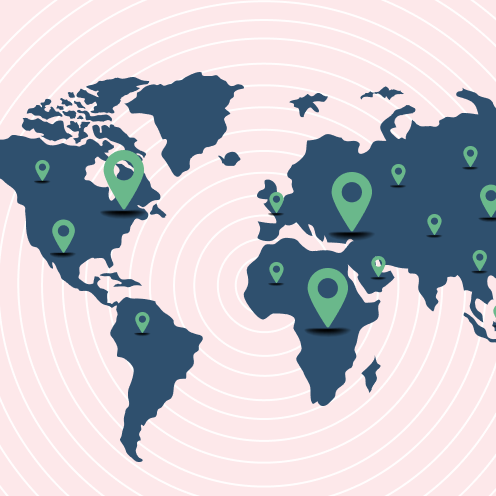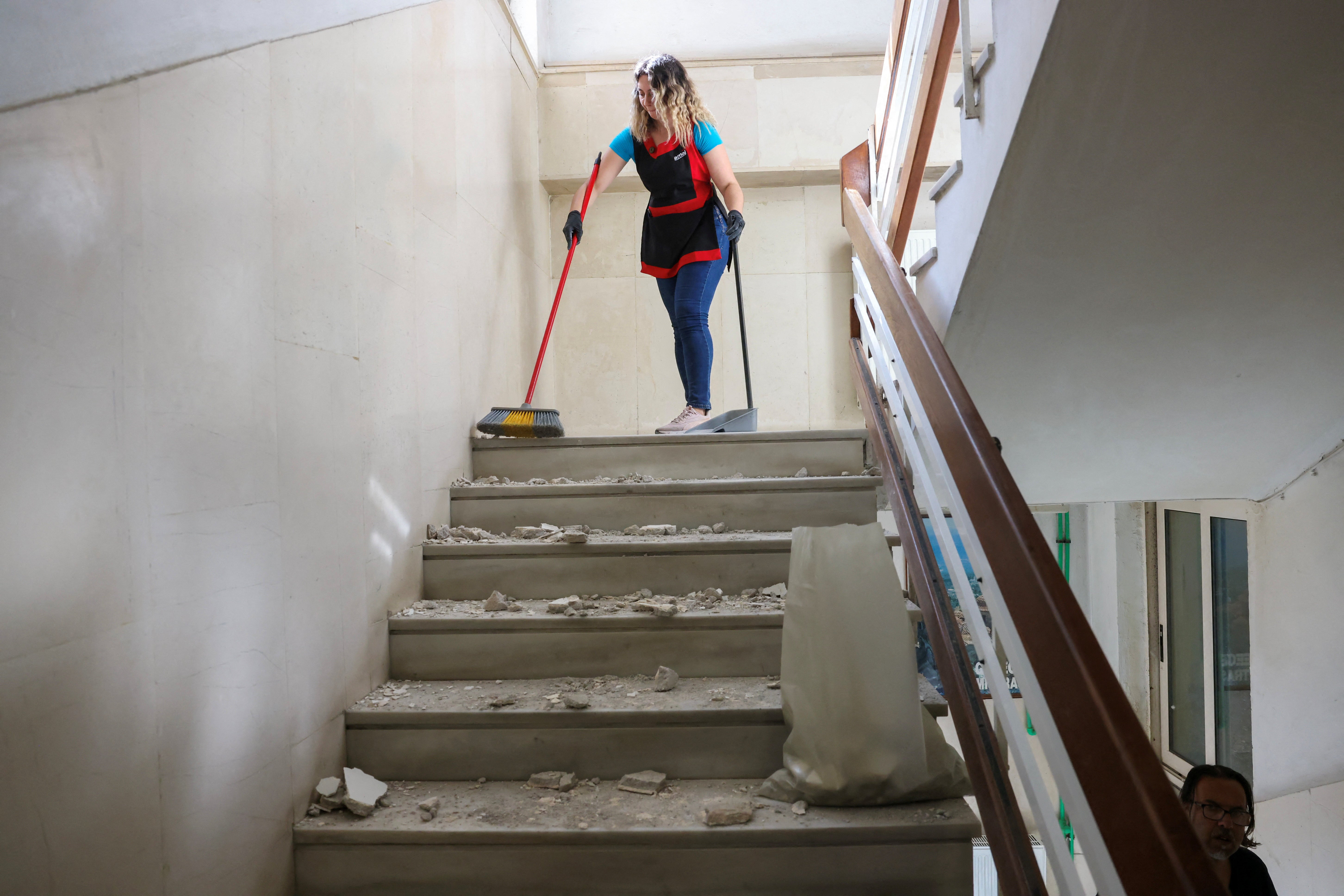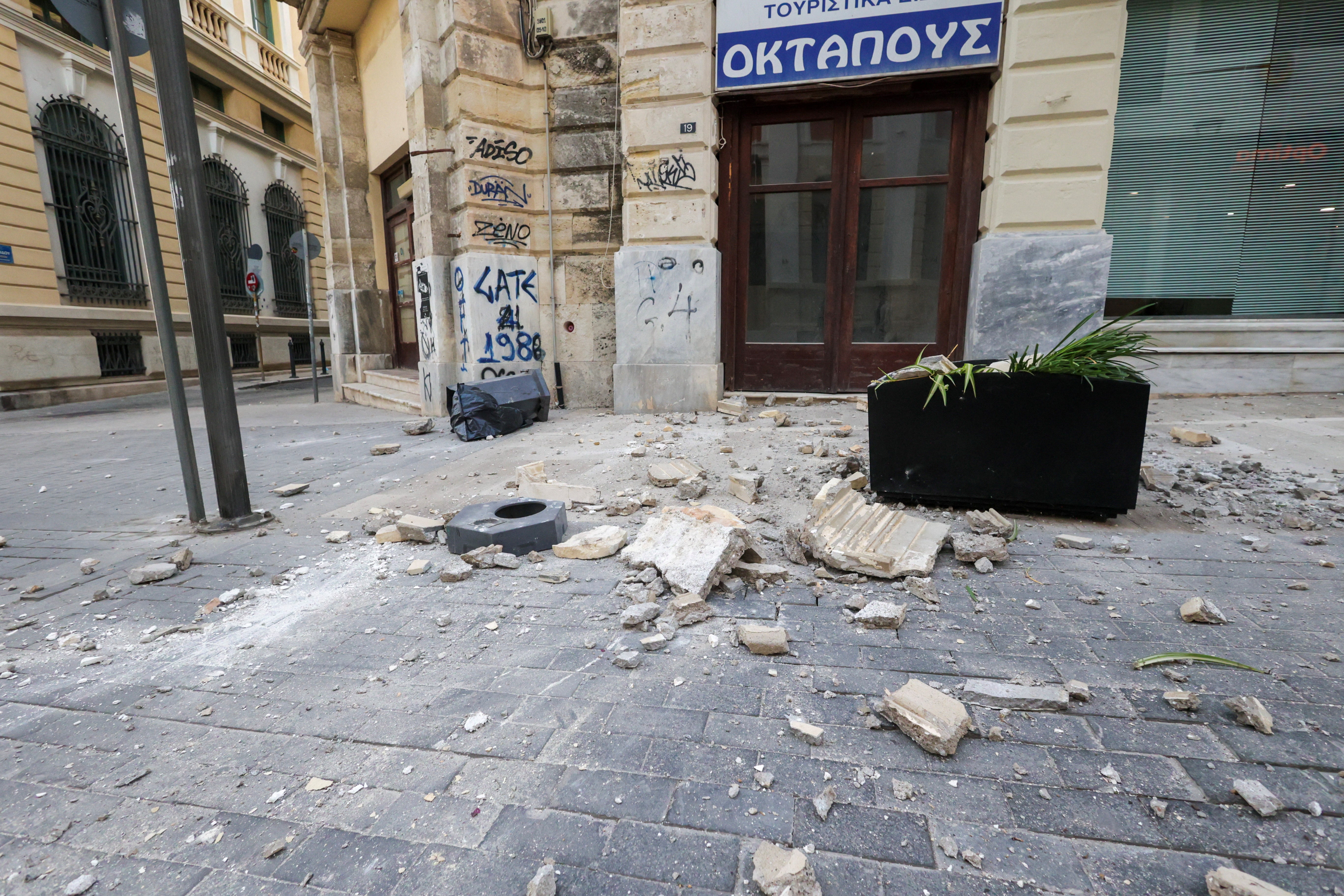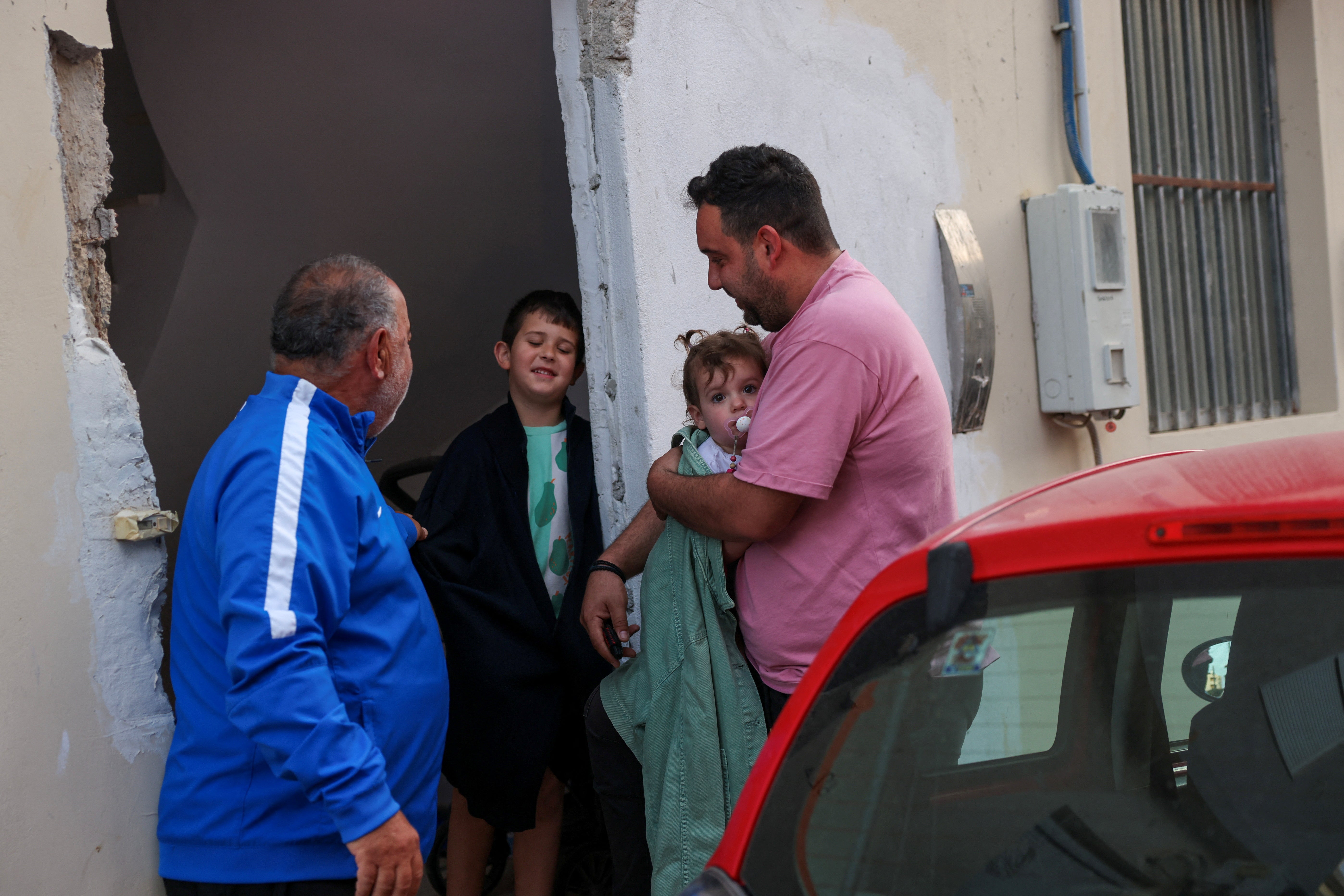Shorouk Express
On The Ground newsletter: Get a weekly dispatch from our international correspondents
Get a weekly dispatch from our international correspondents
Get a weekly international news dispatch

Tourists were urged to “move away from the coast” after a 6.1-magnitude earthquake near Crete led to warnings of a possible tsunami in Greece and beyond.
The powerful earthquake struck off the coast of Crete at 3.19am local time, according to the German Research Centre for Geosciences (GFZ).
The tremor’s epicentre was located 58 km north-northeast of Elounda at a depth of 69 km.
No injuries or major damage have been reported so far.
The European-Mediterranean Seismological Centre (EMSC) issued a tsunami warning, advising residents in Greece, Turkey, Italy, France, and Portugal to follow guidance from their local authorities.
The quake was felt across the Aegean Sea, reaching parts of Turkey, Israel and north Africa.
Residents in eastern Crete shared on the EMSC website that the tremor woke them as their beds began to shake, though no evacuation orders were issued.
Crete is a seismological hotspot and while most quakes are mild, stronger ones – such as the deadly 2021 earthquake also centred near Crete – have caused damage in the past.
Crete earthquake: In Pictures



Maroosha Muzaffar22 May 2025 10:15
The moment magnitude 6 Crete earthquake violently shakes bakery machines

Greece earthquake: CCTV captures moment magnitude 6 tremor strikes Crete coast
CCTV captured the moment a 6.1-magnitude earthquake struck the northern coast of Crete, Greece, on Thursday morning (22 May). The European-Mediterranean Seismological Centre (EMSC) issued a tsunami warning, advising residents in Greece, Turkey, Italy, France, and Portugal to follow guidance from their local authorities. Dramatic CCTV footage from a bakery basement reveals the moment the quake hit. Machines are seen violently shaking. The earthquake was felt across the Aegean Sea, including parts of Turkey and Israel. Crete is a seismological hotspot. Most quakes are mild, but stronger ones – such as the deadly 2021 earthquake also centred near Crete – have caused damage in the past.
Rachel Clun22 May 2025 09:50
Regional governor says no reports of injuries
Regional government official Giorgos Tsapakos told state-run television that “there are no reports of injuries or any serious damage” following initial assessments of the affected areas.
The Greek fire brigade said they had no calls for assistance shortly after the quake either.
The shock was felt extensively across islands throughout the Aegean Sea.
The epicentre was in the sea 36 miles north-northeast of Elounda, which is on the northern coast of Crete.
It was 43 miles deep, according to the US Geological Survey.
Earthquake and Planning Protection Organisation director Efthymios Lekkas noted that deeper earthquakes typically cause less surface damage.
Associated Press22 May 2025 09:31
Popular hiking trail in Crete temporarily closed
The Imbros Gorge in Sfakia, a popular hiking trail in Crete, will remain closed as a precaution following the 6.1 magnitude earthquake.
The closure aims to ensure visitor safety after the seismic event, officials said.
According to Ethnos, a Greek daily newspaper, inspections are ongoing in nearby areas like the Samaria Gorge, with a decision pending on whether it will remain open or close temporarily.
Maroosha Muzaffar22 May 2025 09:10
Crete earthquake revives memories of Greece’s deadly 1953 disaster
Today’s 6.1 magnitude earthquake off the northern coast of Crete was a reminder of Greece’s long and volatile seismic history – one of the most devastating examples being the Great Kefalonia Earthquake of 1953.
That quake, which struck the Ionian Islands on 12 August 1953, reached a magnitude of 7.2 and remains one of the strongest in Greek history.
It killed an estimated 800 people, destroyed nearly 90 per cent of buildings on Kefalonia, and left thousands homeless.
It also triggered tsunamis and powerful aftershocks, spreading destruction across nearby islands like Zakynthos and Ithaca.
Maroosha Muzaffar22 May 2025 08:50
Seismologists say Crete earthquake unlikely to trigger tsunami
Efthymios Lekkas, head of Greece’s Earthquake Planning and Protection Organization, said the quake’s location at sea – and its significant depth – made a tsunami unlikely.
According to the Greek daily Ta Nea, Mr Lekkas explained that the earthquake occurred at a significant depth, making it less likely to cause severe surface damage.
He said that the earthquake struck at the junction of the African and European tectonic plates – a zone known for past powerful quakes – but it was unrelated to any volcanic activity near Santorini.
According to CretaLive, in the first 10 minutes after the tremor, the emergency line “100” received only precautionary calls and reports of fear, with no injuries or damage reported.
“We were expecting a revised solution to come out, it is 60km deep and does not pose a danger at such a depth and so many kilometres away from Lasithi and the coast,” emphasised the director of the Geodynamic Institute, Vasilis Karastathis, speaking on OPEN television.
“There is no problem. We will also look at the aftershock sequence, but I do not think it will be intense. With these characteristics of the earthquake, we do not expect any aftershock sequence. There is no need to be concerned,” he said.
“When it is large, the depth opens up the distance, which is why it was felt in Attica and was quite large,” he added.
Maroosha Muzaffar22 May 2025 08:30
CCTV visuals as magnitude 6.1 earthquake hits Crete coast in Greece
Maroosha Muzaffar22 May 2025 08:10
Where did the earthquake strike?
A magnitude 6.1 earthquake struck off the northern coast of Crete early Thursday morning.
The epicentre was located about 58 kilometres northeast of Elounda and Neapolis, beneath the sea at a depth of approximately 69 kilometres.
This area lies at the tectonic boundary where the African and European plates meet, a region known for seismic activity.
.png)
The quake’s offshore location and considerable depth helped reduce its impact on the surface, but tremors were felt across the Aegean Sea region, including parts of Turkey, Israel, and Egypt.
Maroosha Muzaffar22 May 2025 07:50
School safety checks underway after Crete earthquake
Following the 6.1-magnitude earthquake off the coast of Crete, local authorities have moved swiftly to inspect school infrastructure across affected areas, local media reported.
Fire services remain on general alert, with patrols already underway to monitor any signs of damage, Greek daily newspaper Ta Nea reported.
Municipalities in Heraklion and Lassithi have prioritised school checks, ensuring buildings are safe for students.
While no issues have been reported so far, a few school field trips have been cancelled as a precaution, the outlet reported.
A decision on whether schools in Agios Nikolaos will remain open is expected shortly.
Maroosha Muzaffar22 May 2025 07:30
Everything we know about Greece earthquake and tsunami alert
A magnitude 6.1 earthquake struck off northern Crete at 8.49am local time.
The epicentre was 58km northeast of Elounda, at a depth of 69km.
A tsunami alert was triggered by the European-Mediterranean Seismological Centre.
Greek authorities advised everyone, including tourists, to move away from the coast and seek higher ground.
Authorities report no serious injuries or structural damage.
Some minor landslides and debris were noted, especially near Heraklion.
The quake was felt in Turkey, Israel, and Egypt. Its depth likely reduced surface impact.
Meanwhile, emergency services are on full alert with patrols active. Authorities remain cautious.
A 5.9 quake last week prompted a similar tsunami warning.
Crete is in a high seismic zone with deadly quakes in recent years.
No travel advisories have been issued, but tourists are urged to stay alert and follow official instructions.
Maroosha Muzaffar22 May 2025 07:16






















